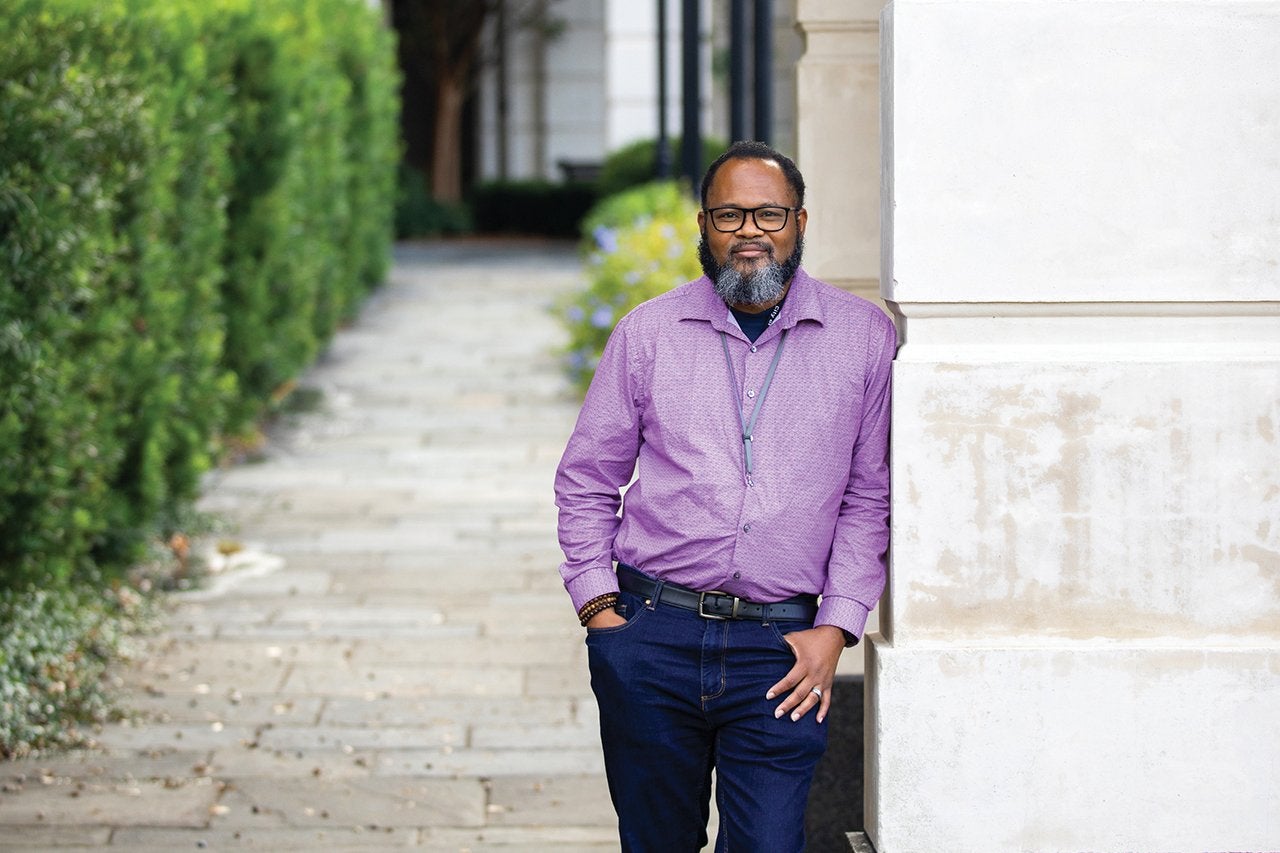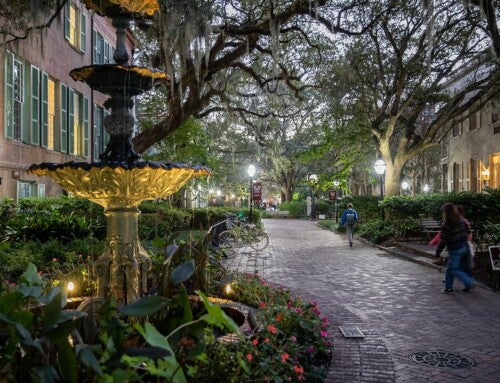For Earnest “Omar” Muhammad ’21 (M.A.), earning his master’s of arts in community planning, policy and design was one of the best decisions he ever made – and one he almost didn’t make.
Muhammad was juggling a full-time job as a fishery biologist at the South Carolina Department of Natural Resources and serving as executive director of Lowcountry Alliance for Model Communities (LAMC), a grassroots organization that addresses inequities in diverse neighborhoods, when he met Grant Gilmore, director of both the College’s Historic Preservation and Community Planning Program (HPCP) and its Community Planning, Policy, and Design (CPAD) Program in the Graduate School.
After hearing a presentation from Muhammad about at-risk communities, Gilmore approached him and encouraged him to apply to the CPAD Program, an urban design program that focuses on social justice and equality.
Going back to school didn’t seem possible to Muhammad, but Gilmore was persistent. He knew that, with CPAD under his belt, Muhammad and LAMC could better help the community.
For the past 15 years, LAMC had advocated for environmental justice and promoted community development, education and quality housing for vulnerable communities in seven North Charleston neighborhoods. To really make an impact, Muhammad knew that the group of volunteers needed help navigating conversations with policymakers and legislators.
“We were doing the work,” explains Muhammad. “We just didn’t have the language to talk about it.”
Following Gilmore’s advice, he enrolled in the two-year CPAD Program. By the time he graduated, he was fluent in the language needed to open doors that were previously closed.
“CPAD helped me see the importance of having the theory behind the work,” says Muhammad. “It also gave me the language to navigate conversations to address inequities and land use policies.”
Muhammad’s passion for addressing inequities is getting noticed. In 2022, he was selected as one of 12 “Black leaders to know” by The Post and Courier. Hailed as some of the state’s most fascinating African American change agents, the 12 included a filmmaker, an architect and a pastor.
Colleagues also took notice and encouraged him to apply for a position with the city. Muhammad took a leap of faith, and today he’s working as a zoning planner with the City of Charleston.
“Zoning is changing across the country because of climate change and rising sea levels,” he says. “As city planners, we’re going to have to respond to flooding and affordability issues. We have to ask ourselves how we as policymakers can implement strategies that are inclusive. We all need to ask how the city is responding to inequities. We need to be conveners of conversations and bring decision makers and community members together.”
After all, says Gilmore, “you never know where a conversation with someone will take you,” pointing to Muhammad’s path as a case in point: “I first met Omar at an event – and from that moment on, I knew that he was an ideal CPAD student. I am so happy that he is using the education he gained here to improve lives for African American communities throughout the Lowcountry every day.”
Featured image by Catie Cleveland




